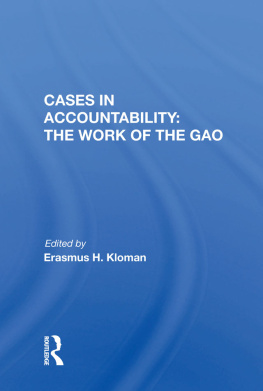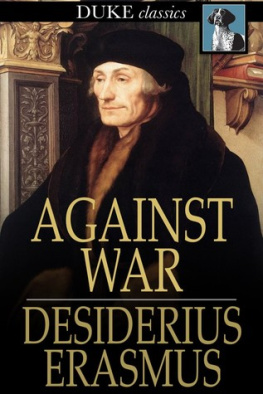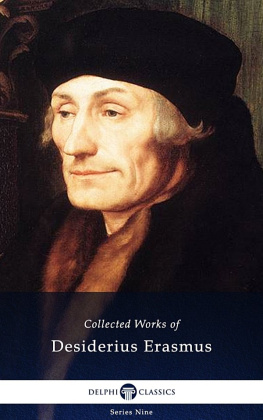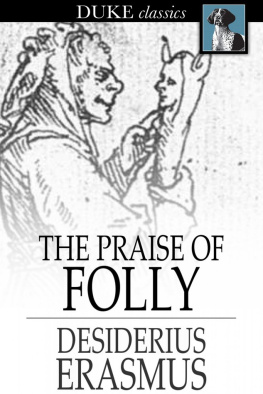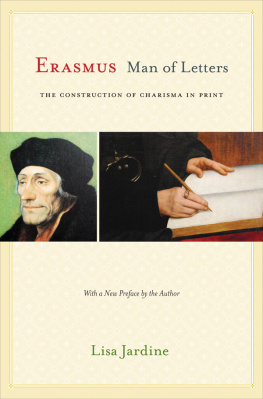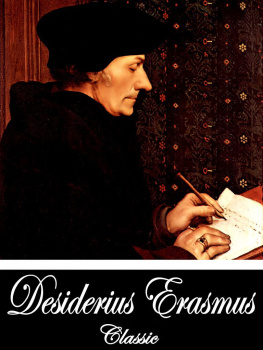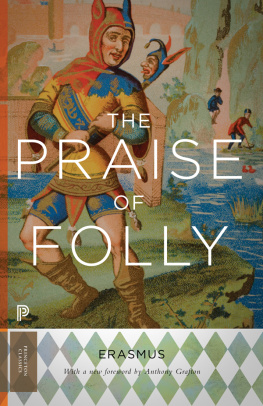Race Otherwise
Forging a New Humanism for South Africa
Zimitri Erasmus
Published in South Africa by:
Wits University Press
1 Jan Smuts Avenue
Johannesburg, 2001
www.witspress.co.za
Copyright Zimitri Erasmus 2017
Published edition Wits University Press 2017
First published 2017
978-1-77614-058-9 (print)
978-1-77614-184-5 (PDF)
978-1-77614-185-2 (EPUB)
All rights reserved. No part of this publication may be reproduced, stored in a retrieval system, or transmitted in any form or by any means, electronic, mechanical, photocopying, recording or otherwise, without the written permission of the publisher, except in accordance with the provisions of the Copyright Act, Act 98 of 1978.
All photographs in the section following page 100 are from the authors collection. Unless otherwise indicated, they have been reproduced from photographs of the original black and white prints taken by the historian Jenny Gordon in order to preserve them. All images remain the property of the copyright holders. The publishers gratefully acknowledge the publishers, institutions and individuals referenced for the use of images. Every effort has been made to locate the original copyright holders of the images reproduced here; please contact Wits University Press in case of any omissions or errors.
Map of Dutch and British imperial trade and travel routes redrawn from an original map by James Cheshire, University College London, using data by CLIWOC. Maps of Port Elizabeth Group Areas adapted from Glenn Adler, Render unto Caesar: The central state, local government and struggles over segregation in Port Elizabeth and Uitenhage, 1948-1962. Seminar paper presented at the Institute for Advanced Social Research, University of the Witwatersrand, 18 September 1995.
Project manager: Karen Press
Copy editor: Karen Press
Proofreader: Inga Norenius
Indexer: Marlene Burger
Cover and book design: Fire and Lion, South Africa
Map design: Andrea Rolfes
Typesetter: Fire and Lion, South Africa
Printed by ABC Press
To my mother, Maria, and my father, Benjamin.
To their stories, of which I know too little.
Appreciations
Race Otherwise: Forging a New Humanism for South Africa is a small contribution to the significant work of the Apartheid Archive Project established in 2008. This project is dedicated to the collection and analysis of ordinary South Africans narratives of everyday experiences of racism under apartheid. While formally housed at the University of the Witwatersrand, Johannesburg, it is a transnational, trans-institutional and interdisciplinary project.
I walked a long way through the chairs (Travis Lane 1993) with these pages. For most of the first half of my life, words were wounds. The late Gerrit Huizer, my doctoral supervisor at the University of Nijmegen in the Netherlands, helped me heal words and love them. The late Vernon February, my host at the Afrikastudiecentrum, University of Leiden, introduced me to him.
Dan Ncayiyana is the archangel who stood next to me. Crain Soudien, Pamela Nichols, Garth Stevens, Kira Erwin, Walter Mignolo, Njabulo Ndebele, Nina Jablonski, Lewis Gordon, Catherine Walsh, Barnor Hesse and Peace Kiguwa read drafts and gave me their thoughts. I thank them.
Renee van der Wiel brought me books I never knew existed. She walked with me through the creative process.
Paul Gilroy gave me guided reading that changed my scholarly life. The W.E.B. Du Bois Institute provided a time of reflection. The Academic and Non-Fiction Authors Association of South Africa provided much needed initial funding and encouragement for this writing project. Norman Duncan, Nazeema Mohamed and Tawana Kupe were instrumental in bringing me to the University of the Witwatersrand. The Wits Transformation Office and its Carnegie Equity Fund, administered by Hugo Canham, invited me into the warm and vibrant embrace of Wits University in 2011. Sharon Moonsamy welcomed me warmly into the Emthonjeni Centre. At the University of Cape Town, Danie Visser, Crain Soudien and David Cooper kindly put my scholarship before their institutional desires. The Stellenbosch Institute for Advanced Study gave me concentrated quietude and a whole new scholarly community. Without the patience and generosity of the Faculty of Humanities Research Committee and the Mellon Programme for Advancing the Professoriate at Wits University, my way through the chairs would have been longer.
Thank you to members of my family who kindly assisted with information about the photographs reproduced here. SunMedia, Sage, Berghahn Journals and Transformation kindly permitted the reproduction of parts of previous publications.
Marion Wertheim, Shireen Ally, Crain Soudien and Zetu Makamandela-Mguqulwa gave me courage when I needed it. I also thank my friends Rejane Williams, Tanya Chan-Sam, Edmarie Pretorius, Srila Roy, Bridget Kenny and Laurel Baldwin-Ragaven. Special thanks to Pervaiz Khan for long conversations, for sharing literature, delicious meals, laughter, tears and more.
Monica Seeber weighed each word and sentence for its meaning. The book is here because of Roshan Cader and Veronica Klipp of Wits University Press. I extend my gratitude to the anonymous readers for their valuable commentary. I am especially honoured by the reader whose incisive scholarly critique urged me to reconceptualise the initial manuscript. Some of the detailed information about my family pictures comes from the family genealogy on geni.com, managed by Herbert Walton. I am privileged to have had the meticulous editorial attention of Karen Press.
Zimitri, Johannesburg, 2017
Abbreviations and acronyms
| AGEI | Africa Genome Education Institute |
| GDP | gross domestic product |
| HGDP | Human Genome Diversity Project |
| LHP | Living History Project |
| mtDNA | mitochondrial DNA |
| UCT | University of Cape Town |
| UK | United Kingdom |
| UNESCO | United Nations Educational, Scientific and Cultural Organisation |
| USA | United States of America |
FOREWORD
Rehumaning our times, or love in a time of hate
SOUTH AFRICA, AS MANY close observers of its inner workings know, is a place of contradiction. It has long been so. Given the countrys obvious racial history, the contradiction is at some levels perfectly comprehensible. But it is not without its puzzles. While the chasm between those with privilege and those without it has a racial character, belying this situation and giving it its less than legible obviousness are the continually confounding ways in which a number of factors work prior to, behind, alongside of and after race. They have the effect of calling us to pause each time we explain what the problem of South Africa is all about. How one makes sense of race is what drives Zimitri Erasmuss Race Otherwise: Forging a New Humanism for South Africa. She writes with a searing commitment to being human. It is a text which continues in that distinctive South African tradition of engaged non-racial and anti-racist scholarship. Critical about that tradition is its refusal to take anything for granted to never, in the first instance, work with social experiences at their surface level, and, in the second, to never apologise for the desire to understand life more deeply. It is about understanding the contradictions which surround race, but also how to live in relation to it. This approach produces, and I shall return to this below, what Erasmus describes as a double politics, the challenge of how to begin to work with the realness and unrealness of race.



